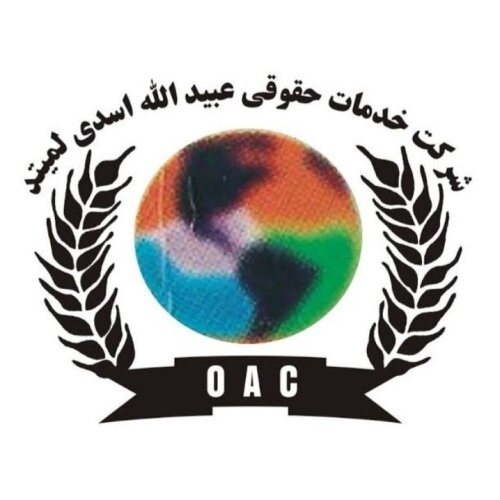Best Civil Rights Lawyers in Kabul
Share your needs with us, get contacted by law firms.
Free. Takes 2 min.
List of the best lawyers in Kabul, Afghanistan
About Civil Rights Law in Kabul, Afghanistan
Civil rights refer to the basic rights and freedoms that every individual is entitled to, regardless of their race, religion, nationality, gender, or other protected characteristics. In Kabul, Afghanistan, civil rights are governed by both national laws, such as the Afghan Constitution, as well as international conventions and treaties ratified by the country.
Why You May Need a Lawyer
There are various situations where you may require legal help regarding civil rights in Kabul, Afghanistan. Some common scenarios include:
1. Discrimination: If you believe you have been discriminated against based on your race, religion, gender, or other protected characteristics, a lawyer can help you understand your rights and options for seeking justice.
2. Freedom of Speech: If your freedom of expression has been violated or you are facing restrictions on your right to express your opinions or participate in peaceful protests, a lawyer can guide you on how to protect your rights.
3. Right to Privacy: If your privacy has been violated, whether by the government, private entities, or individuals, a lawyer can assist you in understanding the applicable laws and remedies available.
4. Police Brutality: If you have been subjected to excessive force, abuse, or misconduct by the police, a lawyer can help you navigate the legal process and seek accountability for violations of your civil rights.
5. Employment Discrimination: If you believe you have faced discrimination in the workplace based on factors such as gender, ethnicity, or disability, a lawyer can help you understand your rights and options for recourse.
Local Laws Overview
In Kabul, Afghanistan, civil rights are primarily protected by the Afghan Constitution and international treaties ratified by the country. Some key aspects of local laws relevant to civil rights include:
1. Afghan Constitution: The Afghan Constitution guarantees fundamental rights and freedoms to all individuals, including the right to equality, freedom of expression, freedom of religion, and the prohibition of torture and discrimination.
2. International Treaties: Afghanistan is a party to various international treaties and conventions that protect civil rights, such as the Universal Declaration of Human Rights and the International Covenant on Civil and Political Rights.
3. National Laws: Afghanistan has laws addressing specific civil rights issues, such as the Elimination of Violence Against Women Law, which aims to protect women's rights and combat gender-based violence.
4. Sharia Law: In Afghanistan, certain legal matters may be governed by Islamic principles as prescribed under Sharia law, which can affect civil rights in areas such as family law.
Frequently Asked Questions
Q: What should I do if I believe I have been discriminated against?
A: If you believe you have been discriminated against, it is recommended to consult with a civil rights lawyer who can assess your situation and guide you on the appropriate legal steps to take. They can help you gather evidence, file a complaint, and seek remedies under the applicable laws.
Q: Can I express my opinions freely without facing consequences?
A: While the Afghan Constitution protects freedom of expression, there may be certain legal limitations. It is advisable to exercise caution and ensure that your opinions are within the boundaries defined by the law. Consulting with a lawyer can provide you with guidance on exercising your right to free speech.
Q: What remedies are available if my privacy has been violated?
A: If your privacy has been violated, you may be entitled to remedies such as compensation, cessation of the violation, and injunctions to prevent further violations. A civil rights lawyer can evaluate your case and guide you on the appropriate legal actions to take.
Q: How can I hold the police accountable for misconduct?
A: If you have experienced police misconduct, such as excessive force or abuse, you can take legal action. It is crucial to document the incident and gather evidence. A civil rights lawyer can guide you through the complaints process, help you file a complaint, and represent you in any legal proceedings.
Q: What protections do women have under Afghan law?
A: Afghan laws protect women's rights in various areas such as education, employment, and political participation. However, gender inequality and discrimination persist. A civil rights lawyer specializing in women's rights can provide you with tailored advice and assistance in seeking justice and protection under the law.
Additional Resources
For more information and assistance with civil rights issues in Kabul, Afghanistan, you may find the following resources helpful:
- The Afghanistan Independent Human Rights Commission (AIHRC): The AIHRC is a governmental body responsible for promoting and protecting human rights in Afghanistan. They can provide information and guidance on civil rights-related matters.
- International Organization for Migration (IOM) - Afghanistan: The IOM provides support to migrants and displaced persons in Afghanistan, including legal advice and assistance concerning civil rights issues.
- United Nations Assistance Mission in Afghanistan (UNAMA): UNAMA monitors the human rights situation in Afghanistan and can provide resources and information on civil rights matters.
Next Steps
If you require legal assistance in civil rights matters in Kabul, Afghanistan, consider taking the following steps:
1. Research Lawyers: Look for experienced civil rights lawyers in Kabul who have expertise in the specific area of concern.
2. Consultations: Schedule consultations with different lawyers to discuss your case and evaluate their expertise, approach, and fees.
3. Provide Information: Be prepared to provide detailed information and documentation related to your case during the consultations.
4. Choose a Lawyer: Select a lawyer who you feel comfortable working with and who demonstrates a clear understanding of your situation.
5. Seek Legal Representation: Retain the services of the chosen lawyer, who will guide you through the legal process, represent you, and provide necessary advice to protect your civil rights.
Lawzana helps you find the best lawyers and law firms in Kabul through a curated and pre-screened list of qualified legal professionals. Our platform offers rankings and detailed profiles of attorneys and law firms, allowing you to compare based on practice areas, including Civil Rights, experience, and client feedback.
Each profile includes a description of the firm's areas of practice, client reviews, team members and partners, year of establishment, spoken languages, office locations, contact information, social media presence, and any published articles or resources. Most firms on our platform speak English and are experienced in both local and international legal matters.
Get a quote from top-rated law firms in Kabul, Afghanistan — quickly, securely, and without unnecessary hassle.
Disclaimer:
The information provided on this page is for general informational purposes only and does not constitute legal advice. While we strive to ensure the accuracy and relevance of the content, legal information may change over time, and interpretations of the law can vary. You should always consult with a qualified legal professional for advice specific to your situation.
We disclaim all liability for actions taken or not taken based on the content of this page. If you believe any information is incorrect or outdated, please contact us, and we will review and update it where appropriate.









